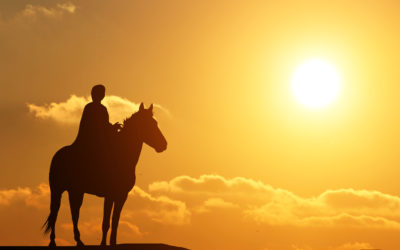Around 10,000 years ago, societies began to transition from a hunter/gatherer approach to feeding their families and tribes to an agricultural one, where working the land allowed them a less nomadic existence than following the food supply through its seasonal migrations.
While hunting and gathering have never completely died out, in the 20th and now 21st centuries they have become almost exclusively “hobbies”, where strictly regulated hunting seasons and roadside “pick your own strawberry” farms compete with video games and soccer leagues as fun and interesting ways to spend your leisure time.
In a similar way, our society seems to have adopted a primarily agricultural model of success. If you want to succeed, we are taught, you need to till the soil in your chosen field, working the land and planting seeds of opportunity. If you’re willing to work hard from dawn to dusk (or at the very least from 9am – 5pm), over time your efforts will bear fruit and you will be able to reap a rich harvest.
The traits of value on the farm are steadfastness, reliability, and patience, as in this world the gap between planting a seed and reaping the harvest is nearly always measured in months, not days or hours. And the learning curve – what we practice and get skilled at – is built around understanding what grows best in each kind of soil, putting in the hours even when the first shoots of life have not yet broken through, developing irrigation systems that mitigate the variability of weather, and in particular managing our food supply between harvests.
This maps across to the discipline, diligence, and patience we are taught will be key to our success in life, as in the world of business and personal success, the gap between planting a seed and reaping a harvest is nearly always measured in years, not months or days. And the learning curve – what we practice and get skilled at – are the details and distinctions of our chosen field, how to stay motivated to turn up for work each day even when our efforts don’t seem to be bearing fruit, developing risk management profiles that mitigate the variability of the economy, and in particular managing our savings and cash flow between harvests.
By way of contrast, let’s take a look at the traits and skills that are rewarded in a hunter/gatherer society. Responsiveness, flexibility, and quick reaction time are paramount because potential food comes along quickly and often disappears just as quickly. The ability to spot low-hanging fruit is always rewarded and setting traps and snares in a likely spot can bring pleasant surprises at the end of the day while you’re off doing other things.
When fresh game is in good supply, you don’t hunt any more than is needed, lest you thin the herd or fish out your hole unnecessarily. And when food is thin on the ground, you pack up and go where the food is instead of staying where you are in hopes that the food will come back to you. Having too much food stored actually becomes a burden, because you wind up having to spend your time guarding that food from predators and it both blinds you to opportunity and dulls the edge of your hunting and gathering skills.
When we map this over to the world of business and personal success, as hunter/gatherers we value the ability to travel lightly so we can capitalize on opportunities as they arise. Our learning curve – what we practice and get skilled at – is opportunity spotting: noticing the opportunities for service in our immediate environment and acting on them as quickly and responsively as we can. And while we don’t ignore the value of storing excess food between hunts, we recognize that some fruits spoil quickly and do our best not to become a slave to the demands of ownership.
Just as different weather patterns bring out different animals, different economies create different opportunities. Because we have trained ourselves to be responsive, we don’t have a particular preference for one kind of weather system over another, so we don’t feel victimized by 100 days of rain in the way that our farmer brethren may feel cursed by 100 days without it. When our food supply wanders off, we wander off after it, not tempted to stay where it used to be and wonder, as Spencer Johnson said, “who moved our cheese?”
My argument is not that being a hunter/gatherer is better than being a farmer. It is that in the fast-twitch economy we find ourselves in:
By the time we’ve reached 10,000 hours of practice at our chosen discipline, the game has changed to the point where we need to start again from zero.Click To TweetIn ancient times of great volatility, the ability to spot game and low-hanging fruit and adapt to quickly changing environments gave hunter-gatherers the edge. In modern times, where politics and technology and innovation are changing the game at an exponential rate, the ability to spot opportunities and be of service in a variety of ways gives us that same edge.
How can you apply this to your own business or career?
1. Slow down
Instead of spending today in pursuit of your goals, see what life has on offer for you right here, right now. If you had to make your living by being of service to those around you, what opportunities to serve do you notice turn up in your email, phone messages, daily news feed and conversations today?
2. Be willing to let go of old thinking
Deciding that I’m only willing to make my living by doing the job I was trained to do would be like choosing to only specialize in hunting narwhals. Very practical during narwhal season if you happen to be in the Arctic circle, but not so useful otherwise. Genius is infinite – and the ability to spot opportunities and be of service will serve you in any environment.
3. Hunt to live, don’t live to hunt
Lions, by most modern human standards, are lazy animals. They only hunt when they need food and spend the rest of the time hanging out in the sun with their families, or “pride”. Yet as a coach, I’m in the wonderful life business – and I know of few lives more wonderful than one spent hanging out with your family and friends, being of service, and enjoying opportunities as they arise.
Have fun, learn heaps, and happy hunting!
With all my love,
![]()





